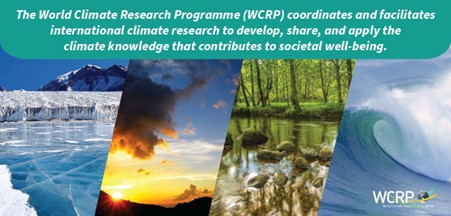By: Rowan Sutton
My schedule last week was rather awry. Over four days I took part in a meeting of 50 or so climate scientists from around the world. Because of the need to span multiple time zones, the session times jumped around, so that on one day we started at 5am and on another day finished at 11pm. I’m glad I don’t have to do this every week.
But it was a valuable meeting. Specifically, it was a meeting of the Joint Scientific Committee of the World Climate Research Programme, known as WCRP. The WCRP aims to coordinate and focus climate research internationally so that it is as productive and useful as possible. In particular, the WCRP envisions a world “that uses sound, relevant, and timely climate science to ensure a more resilient present and sustainable future for humankind.”
Why does the world need an organisation like WCRP? The key reason is that climate is both global and local. We humans – approximately 7.96 billion of us at the last count – all live on the same planet. The global climate can be measured in various ways, but one of the most common and useful measures is the average temperature at the Earth’s surface. Many factors influence this average temperature and, when it changes significantly, the effects are felt in every corner of the world. This is what has happened over the last 100 years or so, during which time Earth’s surface temperature has increased by about 1.1oC as a result of rising concentrations of greenhouse gases in the atmosphere.
More specifically, if I want to understand the climate of the UK, I need to consider not only local influences like hills, valleys, forests and fields, but also influences from far away, such as the formation of weather systems over the North Atlantic Ocean. Even climatic events on the other side of the world, such as in the tropical Pacific Ocean, can influence the weather and climate we experience in the UK.
Because climate is both global and local, climate scientists rely heavily on international collaborations. We need these collaborations to sustain the global network of observations, from both Earth-based and satellite-based platforms, that tell us how climate is changing. We also rely on international collaborations to share data from the computer simulations that are a key tool for identifying the causes of climate change and for predicting its future evolution.
So now that we are living in a climate emergency, what are the priorities of the World Climate Research Programme? And what were some of the topics at our meeting? A lot of attention was devoted to questions of priorities: for example, how can we improve our computer simulations as rapidly as possible in directions that will produce the most useful information for policy makers and others? Alongside reducing greenhouse gas emissions, policy makers are increasingly grappling with questions about how societies can adapt to the changes in climate that have already taken place and those that are expected, and how they can become more resilient. The urgency of these issues is highlighted almost every year now by destructive extreme events we observe around the world – such as the record-shattering heatwave that occurred in Canada last year and the unprecedented flooding in northern Germany and of course we are experiencing a very serious heatwave in the UK right now.
At a personal level, contributing to the WCRP is a privilege. It brings opportunities to engage with a diverse group of dedicated scientists all working toward very challenging but important shared goals. Through involvement with WCRP over many years I have developed valuable collaborations and made good friends. Whilst COVID has brought many challenges, the growth of online meetings has enabled WCRP to become a more inclusive organisation, which is essential for it to fulfil its mission going forward. Especially important is the need for two-way sharing of knowledge, ideas and solutions with those working in and with countries in the Global South, which often lack scientific capacity and are particularly vulnerable to the impacts of climate change. This will be an important focus for a major WCRP Open Science Conference to be held in Rwanda in 2023.

Figure: More information about the World Climate Research Programme can be found at https://www.wcrp-climate.org/
